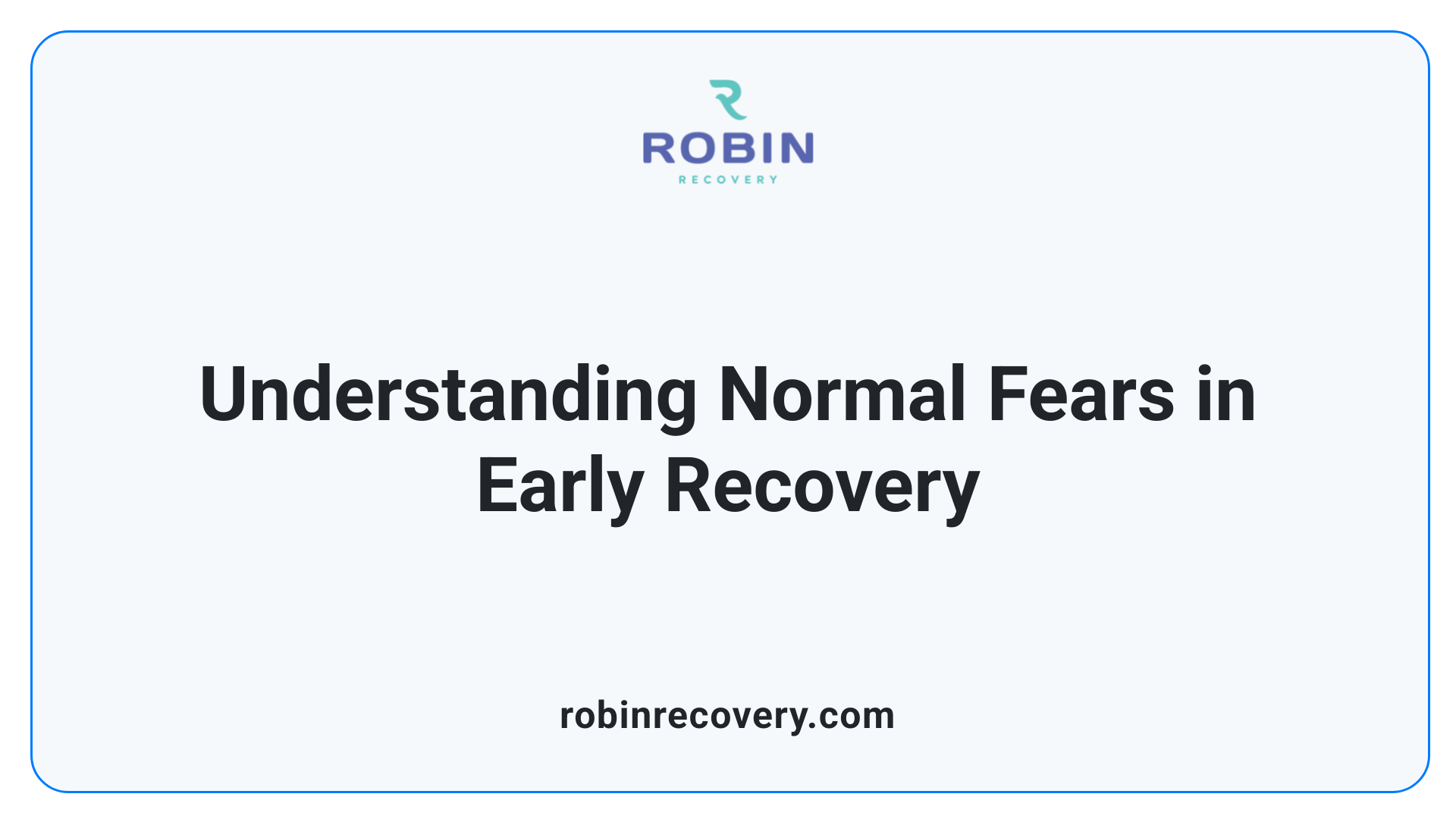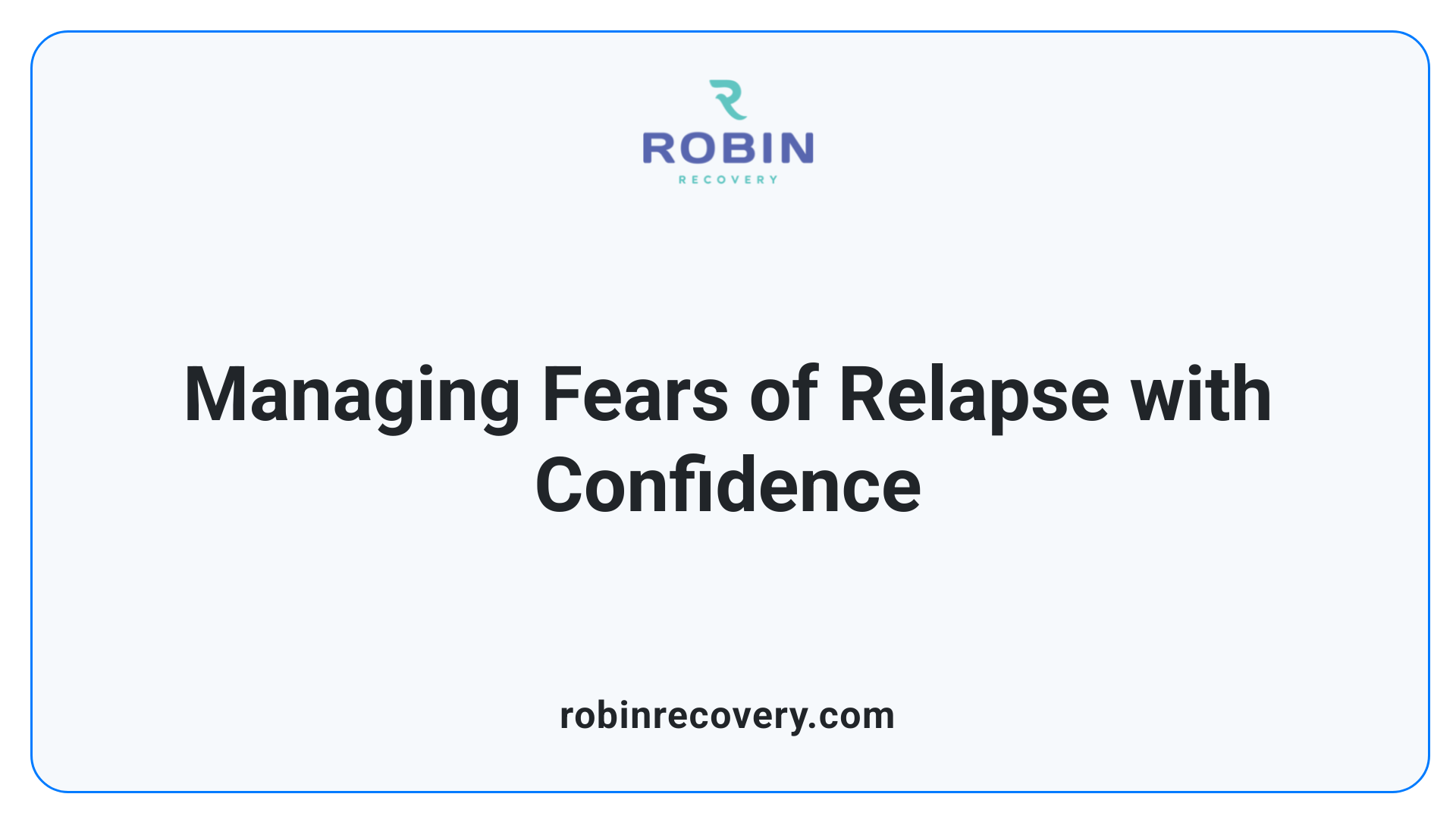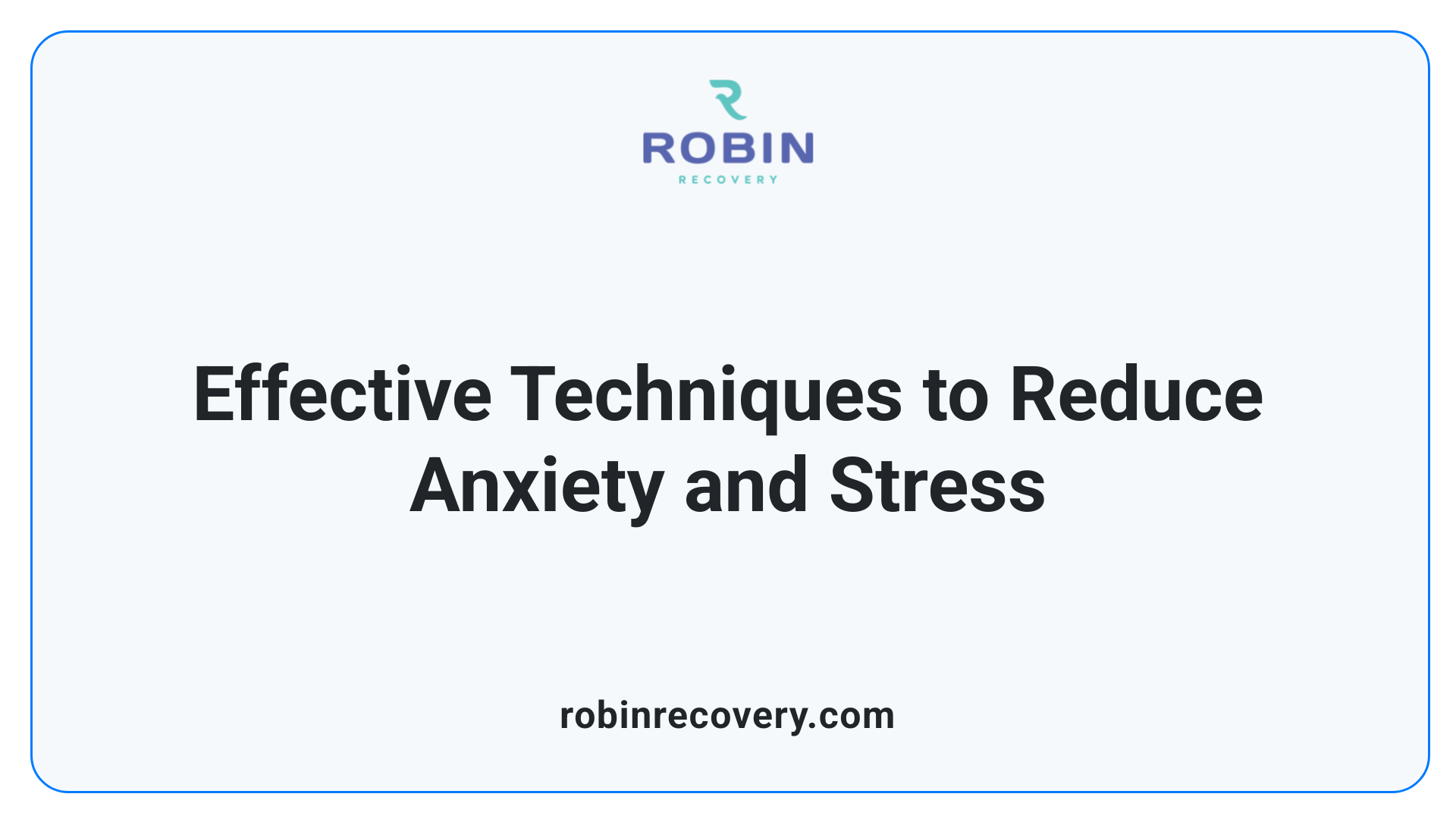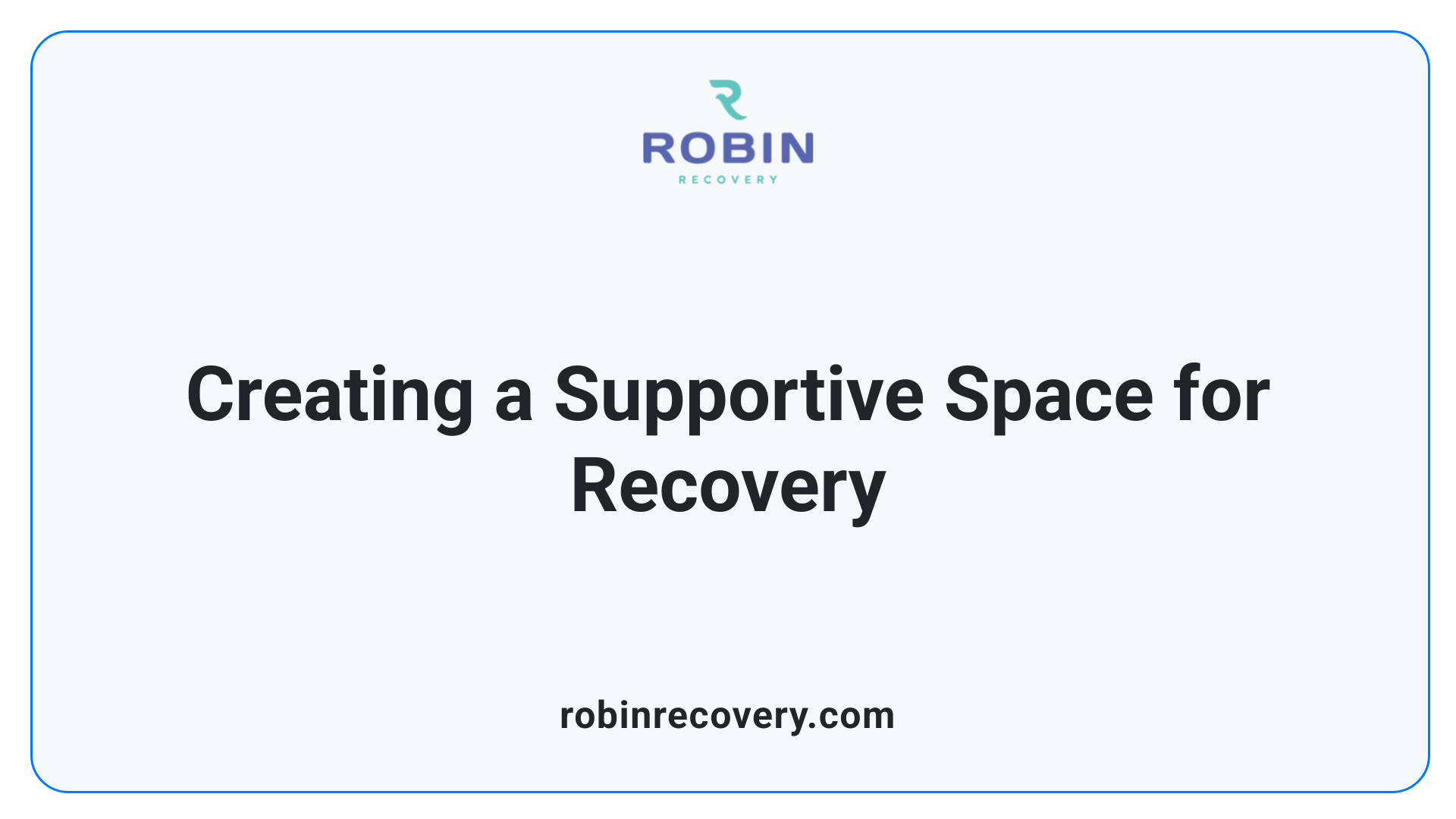How to manage fear and anxiety in early recovery

Understanding and Managing Fear During the First Steps of Sobriety
Embarking on recovery from addiction is a courageous step that often comes with intense emotional challenges. Among these, fear and anxiety are prominent concerns that can hinder progress if not properly managed. Recognizing what to expect and implementing effective coping strategies can make the journey smoother and more resilient. This article explores common fears faced in early recovery, evidence-based techniques to manage anxiety, and practical advice to foster emotional stability as individuals rebuild their lives in sobriety.
Recognizing Normal Fears in Early Recovery

What should be expected during early recovery to help reduce fears and set realistic expectations?
During early recovery, it is entirely normal to experience a range of emotional changes and fears. Many individuals encounter mood swings, feelings of uncertainty, or anxiety as they adjust to sober living. Recognizing these feelings as part of the recovery journey can help reduce the intensity of fears.
Withdrawal symptoms often unmask suppressed emotions, leading to feelings of sadness or doubt. Patience becomes an essential tool in understanding that these emotional highs and lows are temporary and will gradually stabilize.
Developing coping strategies plays a crucial role in managing fears. Engaging in support groups, practicing mindfulness, and maintaining a routine that includes exercise and self-care can bolster resilience.
It’s also important to avoid known triggers such as stressful situations or negative social environments. Instead, cultivating a supportive network of sober friends or professionals provides reassurance and motivation.
Celebrating small victories keeps motivation high and reinforces progress. Recognizing that setbacks are part of the process, not failures, helps maintain a realistic outlook.
In summary, setting realistic expectations involves understanding that recovery is a gradual process. Embracing patience, accepting emotional fluctuations, actively seeking support, and maintaining flexibility are vital for reducing fears and building confidence during early recovery.
Confronting and Managing the Fear of Relapse and Uncertainty

How high are relapse rates among individuals recovering from addiction?
Statistics show that between 40 to 60 percent of recovering addicts may experience a relapse at some point. While this may seem alarming, it's important to remember that relapse is a common part of the recovery journey, not a failure.
Is relapse considered a failure?
Absolutely not. Many people relapse multiple times before achieving long-term sobriety. Each relapse provides valuable lessons and opportunities for growth. Recognizing this helps in reducing shame and encourages persistence.
How can focusing on living one day at a time help manage fears about the future?
Focusing on the present allows individuals to break down overwhelming fears of what might happen. This approach helps manage anxiety by emphasizing daily goals and accomplishments. Taking life one day at a time fosters resilience and gradual confidence.
How does building confidence help in recovery?
Confidence grows through small successes—maintaining sobriety for a day, attending support meetings, or engaging in healthy activities. These achievements reinforce a positive self-image and diminish fears associated with failure and relapse.
Support strategies for emotional challenges in recovery
Individuals facing emotional hurdles related to sobriety and relapse prevention benefit from various support options. Counseling, peer groups like Alcoholics Anonymous, and community helplines such as Kids Help Phone or Lifeline provide vital emotional support.
Therapeutic methods like cognitive-behavioral therapy (CBT) and mindfulness-based relapse prevention help identify triggers, manage cravings, and challenge negative thoughts. Maintaining a structured routine, practicing relaxation techniques, and staying involved in positive activities strengthen emotional resilience.
Recognizing emotional, mental, and physical signs of potential relapse enables early intervention. Combining therapy, medications when needed, stress management, and ongoing support fosters sustainable recovery.
Developing a mindset that sees setbacks as part of the process, along with continuous community involvement, can help individuals confront fears and maintain long-term sobriety. With patience, persistence, and support, managing the fear related to relapse and uncertainty becomes a manageable aspect of recovery.
Practical Techniques to Alleviate Anxiety and Stress

What techniques can help manage anxiety and stress during early recovery?
Managing anxiety and stress is crucial during the initial phases of recovery from addiction. Several practical techniques can significantly help individuals cope with these emotions. Mindfulness practices are highly effective; activities like focused breathing exercises, body scans, and meditation help calm the mind and bring awareness to the present moment, reducing feelings of overwhelm.
Physical activity also plays a vital role. Engaging in regular exercise such as walking, yoga, swimming, or other enjoyable workouts can promote the release of endorphins—natural mood lifters—that help reduce stress and alleviate anxiety.
Establishing a structured daily routine provides predictability and a sense of control, which eases uncertainties and emotional turmoil. Simple routines around waking, mealtimes, and sleep help create stability.
Strong support systems, including friends, family, or peer support groups, are invaluable. Sharing fears and successes fosters emotional reassurance, reducing feelings of loneliness that can heighten anxiety.
Additional relaxation techniques like deep breathing, progressive muscle relaxation, and journaling serve as effective tools to decrease tension and promote emotional balance.
Incorporating these methods into daily life can significantly improve mental health, making the recovery journey more manageable and resilient against setbacks.
Building a Supportive Environment to Reduce Fears

How can support from therapists, support groups, family, and friends help in reducing fears during recovery?
Support from trusted individuals is crucial in alleviating fears faced during recovery. Therapists provide professional guidance and coping strategies that empower individuals to manage anxiety and fears effectively. Support groups create a sense of community, offering shared experiences and encouragement that reduce feelings of isolation. Family and friends play a vital role by offering emotional reassurance, acceptance, and practical help. This network of support fosters a safe space where individuals can openly discuss their fears and setbacks without judgment, building resilience and confidence.
Why is education about the recovery process important?
Understanding what to expect during recovery can significantly lessen fears and misconceptions. Education about treatments, stages of recovery, and what common feelings or challenges are normal helps individuals feel more prepared and less anxious. When individuals are aware of the process, they are more likely to stay engaged and proactive, knowing that setbacks are part of growth. Clear information also helps reduce uncertainty, which is a major source of anxiety in early recovery.
How does establishing routines and healthy habits support fear reduction?
Creating a structured daily routine provides stability, predictability, and a sense of control. Regular wake-up times, balanced meals, scheduled exercise, and calming activities like journaling or walks help frame each day positively. Healthy habits boost physical and mental health, improving sleep, mood, and focus. The consistency of routines minimizes chaos and the worry of unpredictability, enabling individuals to focus on their recovery journey.
How can positive affirmations and visualization techniques be utilized?
Using positive affirmations and visualization helps shift focus from fears to empowering beliefs. Repeating affirmations like “I am capable of overcoming challenges” can boost confidence and promote a hopeful outlook. Visualization exercises, where individuals imagine themselves successfully navigating recovery and future goals, foster motivation and self-assurance. Incorporating these mental practices into daily routines reinforces a resilient mindset, making fears more manageable.
Support Strategies Benefits Additional Tips Therapy & Support Groups Emotional validation, shared experiences Regular attendance and engagement Family & Friends Emotional reassurance, practical support Clear communication, active listening Education & Information Reduced uncertainty, better preparedness Use trustworthy sources, ask questions Routine & Habits Stability, sense of control Maintain consistency, incorporate enjoyable activities Positive Mindset Techniques Confidence, resilience Daily affirmations, visualization exercises
More information can be found by searching for "Supporting recovery through environment and education." Understanding and implementing these elements collectively create a nurturing environment that reduces fears and bolsters long-term sobriety.
Maintaining Resilience and Embracing Growth in Sobriety
Managing fear and anxiety in early recovery is a multifaceted process that involves understanding the nature of these emotions, implementing practical coping strategies, and seeking support when needed. Recognizing that fears are common, manageable, and often temporary can empower individuals to face challenges with confidence. Developing routines, engaging in self-care, staying connected with supportive communities, and practicing mindfulness are essential tools for building resilience. As recovery progresses, overcoming fears becomes a pathway to personal growth, emotional stability, and lasting sobriety. Embracing each small victory along the way reinforces hope and fosters a positive outlook for a healthier, substance-free future.
References
- Unpacking Fear in Recovery: Understanding and Overcoming
- How To Cope With Anxiety in Recovery - Ashley Addiction Treatment
- Coping with Anxiety in Recovery
- Fear in the Early Stages of Recovery - Addiction Center
- 3 Common Fears in Recovery and How to Overcome Them
- Ways to Manage Anxiety While in Early Recovery
- Fear in Recovery - Personal Growth & Meditation
- Facing Fear & Anxiety in Early Addiction Recovery
